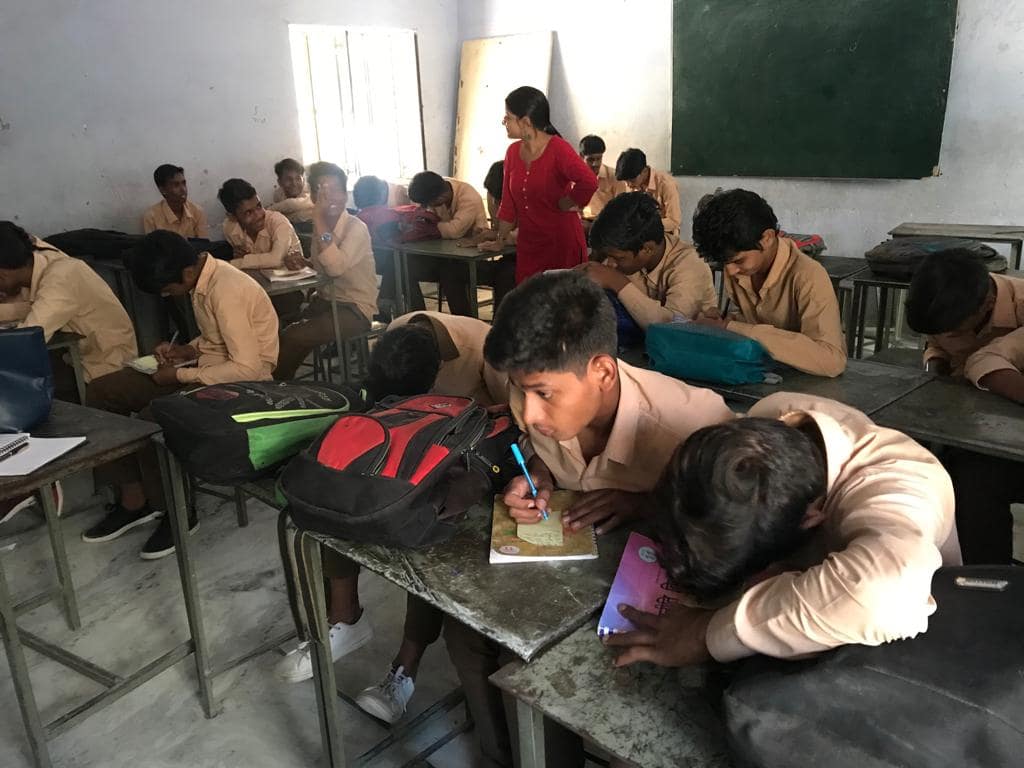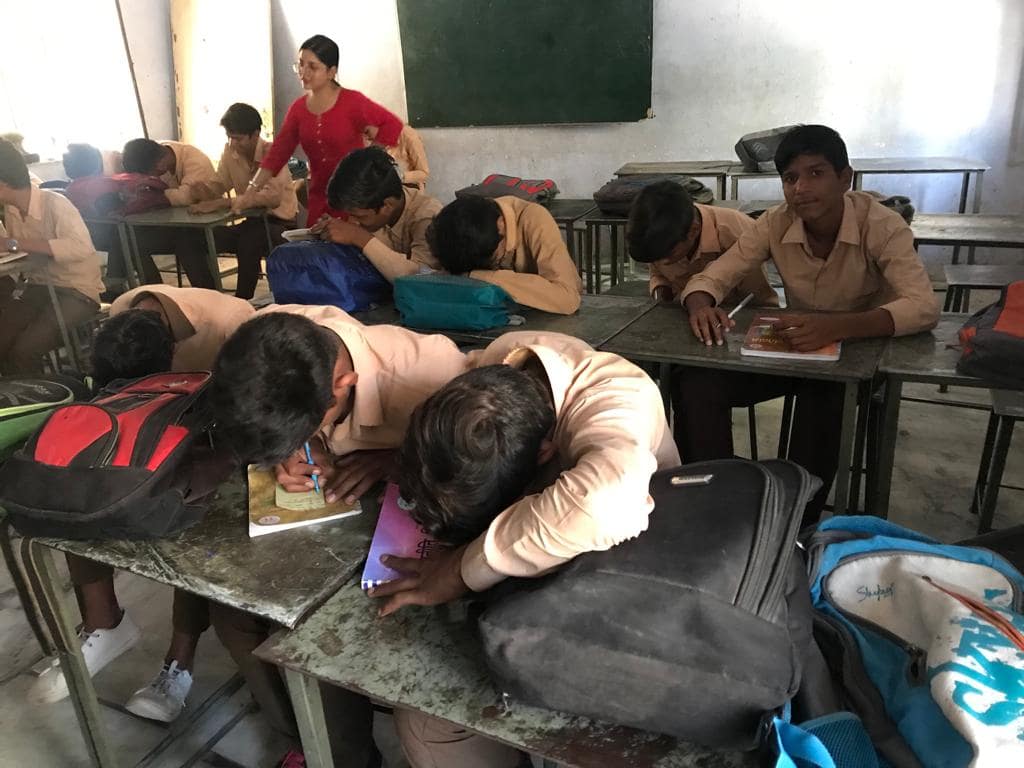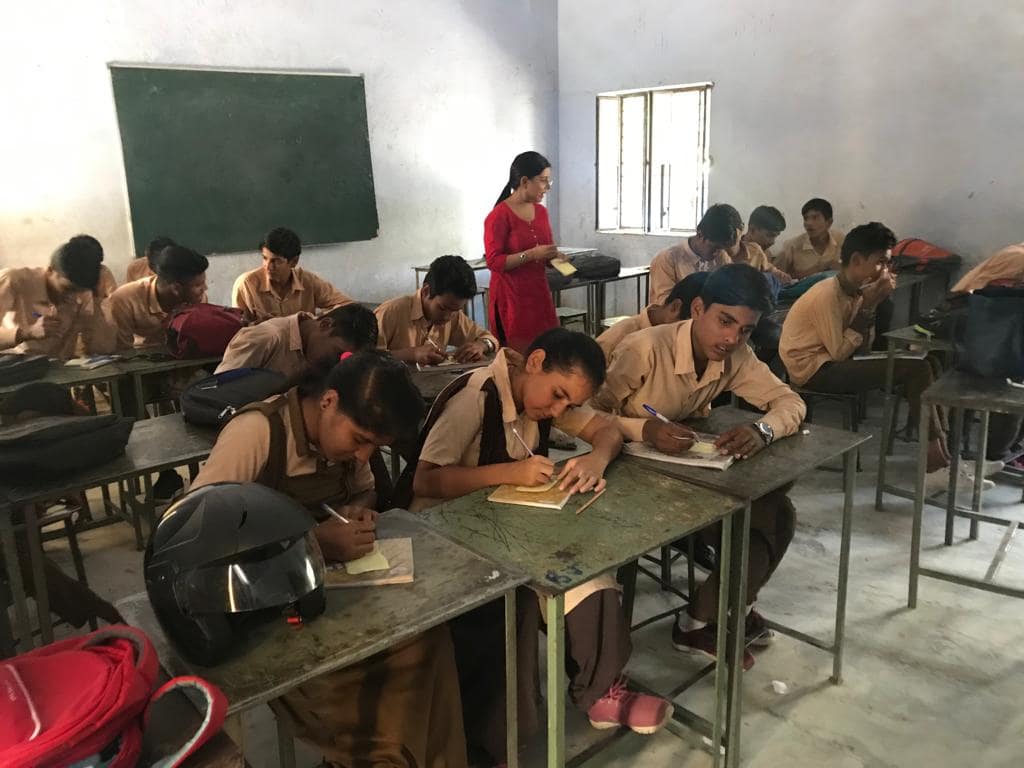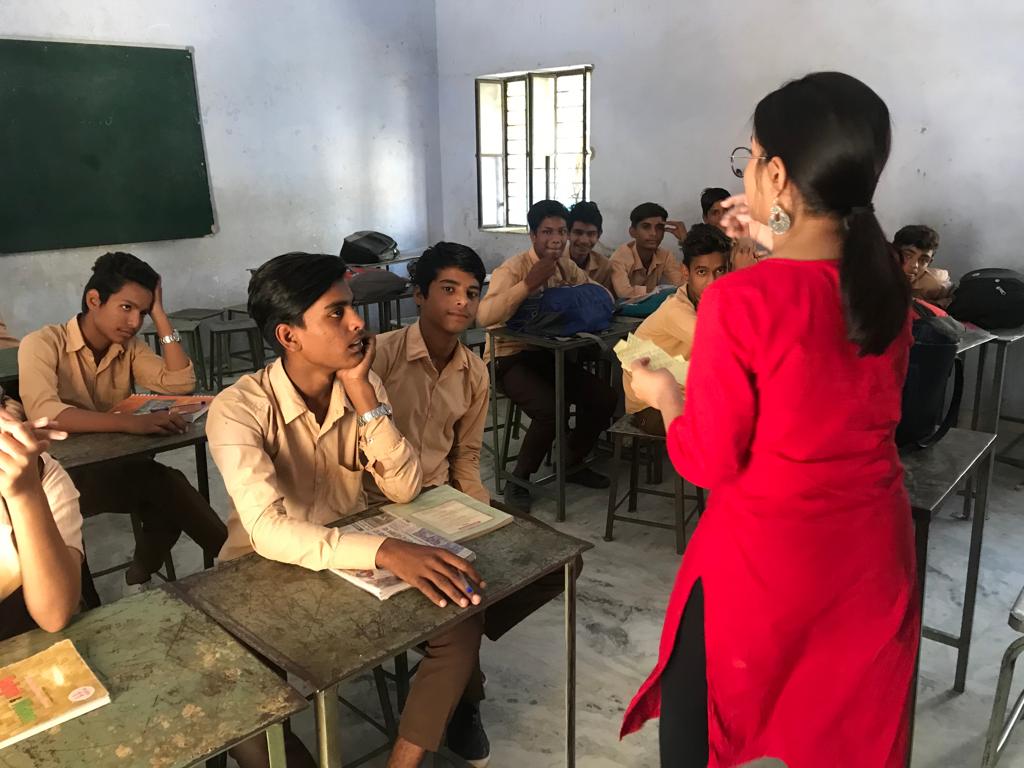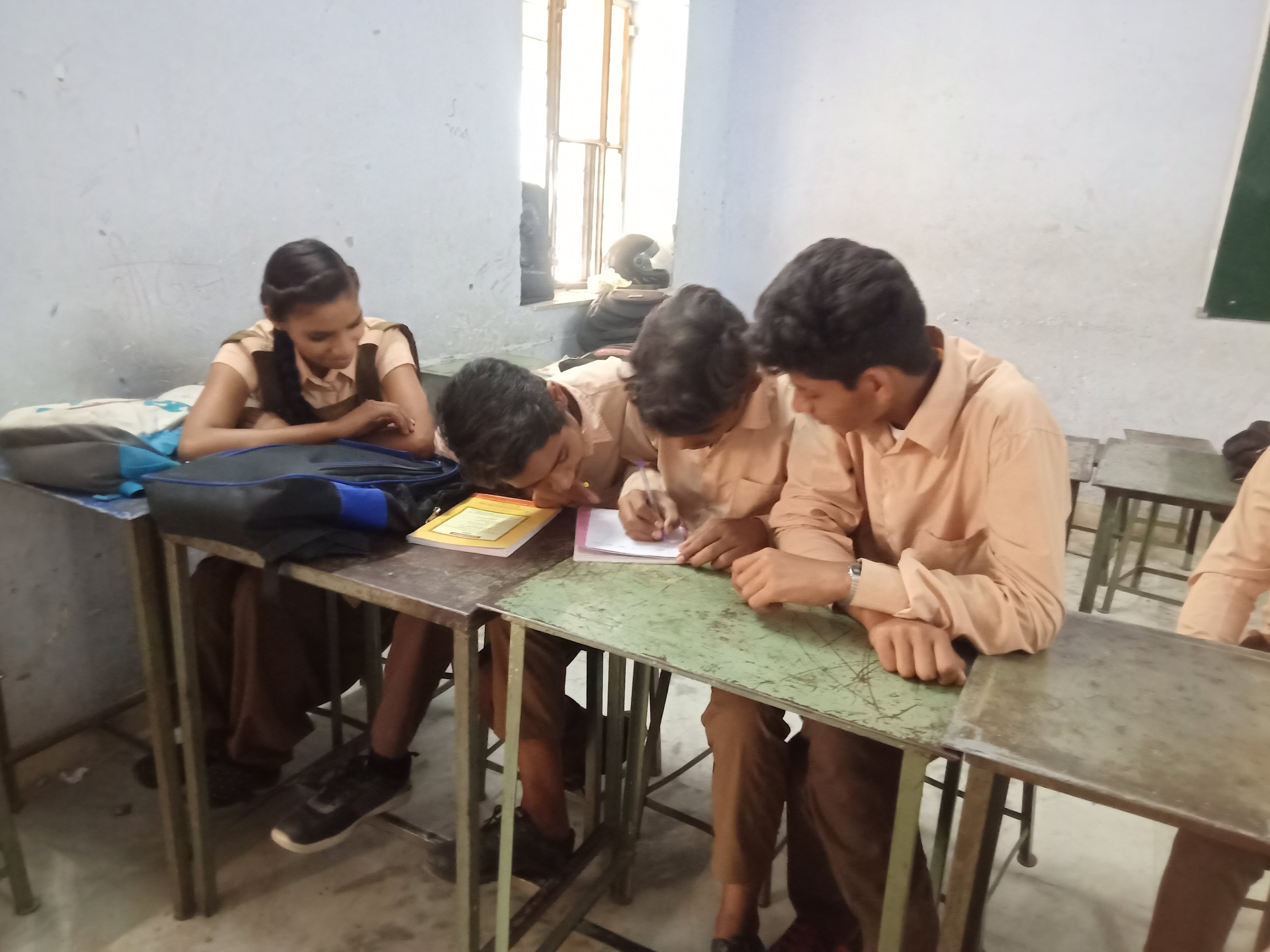Session on changes in adolescences age at Shahid Major Alok Mathur Senior Secondary School in Jhotwara, Jaipur, Rajasthan, October – 2019
Changes of Adolescences Ages (after age 15)
The teenage years bring many changes, not only physically, but also mentally and socially. During these years, adolescents increase their ability to think abstractly and eventually make plans and set long-term goals. Each child may progress at a different rate and may have a different view of the world. In general, the following are some of the abilities that may be evident in your adolescent:
- Develops the ability to think abstractly
- Is concerned with philosophy, politics, and social issues
- Thinks long-term
- Sets goals
- Compares one's self to one's peers
- Conflict with parents
As your adolescent begins to struggle for independence and control, many changes may happen. The following are some of the issues that may be involved with your adolescent during these years:
- Wants independence from parents
- Peer influence and acceptance becomes very important
- Romantic and sexual relationships become important
- May be in love
- Has a long-term commitment to relationship
Pre-session assessment
The total number of participants were 25 children in the 11th standard. During the pre-session assessment, the following points were discussed with the children:
Questions to individuals:
Describe yourself in five lines - Some students wrote down their names and what they like to do and what they are good at, such as cooking and painting, etc. Write two significant changes in their life from the last five years - Some students mentioned that they experienced physical changes in their bodies, such as an increase in height and hair growth, while some students talked about emotional changes, such as being able to think about their future and having learned what is right and wrong. Other responses included having developed their own thought process, learning to control their anger, and spending more time with friends. Who thinks that they can take care of their things now - Most of the students replied that they can take care of their own things, while some students said that they cannot. Do you think that you can make decisions independently? - Some students replied that they can decide their own things, such as what they like to do, but some students replied that they cannot as their parents still make decisions for them. I don't understand my worth in front of my family and friends - Most of the students replied that they do not agree with this point, and they all feel the importance of their family and friends. I love to explore new things and don't care about the risks involved - Most of the boys replied to this question that they love to explore new things and do not care about the risks, while some said that they always care about the risks. I don't like studying anymore - Some boys replied that because of games and mobile phones, they spend most of their time on these activities and do not like to study. However, all the girls said that this question does not apply to them. Now I am conscious about my appearance, such as how I look and what I wear - Some boys and girls responded that they care about their appearance, while some mentioned that they do not. Sometimes I feel upset because of my friends and family - Most of the girls replied that their friends' actions upset them, but only a few boys agreed with this point. Now I need a person who can listen to me and understand what I like and what I do not like - Most of the students replied that they feel this need in their lives. Now I am attracted to a boy/girl - Nobody responded to this question.
Activity conducted during the session
The situations they had to do a role-play (25 students participated in this activity)
First situation: you want a new cell phone -In the first situation, they played a role “where a girl who wants a phone but didn’t get it because their parents told them this is not the right time to get your own personal phone”. Second situation: you want to pursue a subject but your parents are against that decision - In the second situation, they played a role “where a student who wants to pursue arts subject but his parents are not supporting him for this decision. As they showed, his friends influence him to take arts subject instead of science as if he will take science then he has to do lots of studies and if he choose arts then he will enjoy a lot and hangouts with friends, considering this he told his father that he just wants to pursue arts subject and wants to become an IAS officer and finally his parents agreed to this decision. More than being career-oriented, he took arts stream because his friends influenced him”. Third situation: you want to go to your friend’s place at 7:00 PM - In the third situation, they played a role where a girl wants to go to her friend's place but in the end, her parents did not allow her to go because the place is not safe. Fourth situation: your parents find out that you’re in bad habits - In the fourth situation, they showed a very positive ending as situation was that boy parents got to know that his child is in bad habits, so they provided counseling to their child with logics and told him ‘why he should quit all bad habit’.
Post-session assessment
When asked where they derived the ideas for the role-play scenarios, the students explained that they based them on their own daily experiences. When questioned about whether the role-plays represented the only solutions to these situations, the students responded that they could not think of other solutions and therefore the team shared additional perspectives on each scenario.
The facilitator provided tips for coping with changes, which include accepting the changes, trying new things while being aware of the associated risks, confiding in trusted adults, practicing self-appreciation, spending time with family, honestly discussing problems with loved ones, supporting friends and classmates, avoiding harmful substances like alcohol and smoking, and prioritizing personal health.


